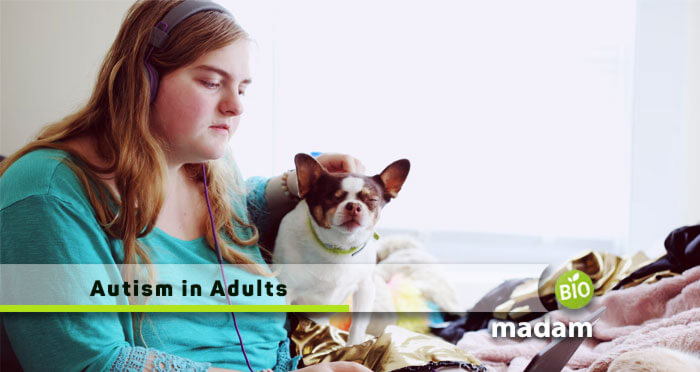Recent research has made people and clinicians more aware of Autism Spectrum Disorder (ASD). People are becoming more conscious about the diagnosis of autism. That’s why many older adults are now in the limelight who remain undiagnosed with autism. The diagnosis of Autism Spectrum (ASD), even in late life, can offer significant relief and benefits because proper diagnosis will enable them to address their problems and get professional help for a better life.
People on the autism spectrum have unique needs across their lifespan. They require special care. They often show minor illnesses related to autism. Problems of people with autism increase manifolds as their problems of autism are not addressed. Therefore the autism diagnosis in adults is essential. Diagnosis may enable them to find support and services to overcome autism-related issues.
Autism Spectrum Disorder (ASD) is a neuro-developmental condition generally characterized by social issues, communication difficulties, and repetitive behaviors. Autism can occur in all ages and socioeconomic groups. Low-functioning ASD is often diagnosed at the age of two. Still, the diagnosis of high-functioning ASD is not easy as its symptoms are overlooked by loved ones and medical professionals alike. According to recent research, one in 68 old adults have autism spectrum disorder, and most of them are not diagnosed with ASD until the age of 55.
Three Main Symptoms of Autism

Autism symptoms are primarily characterized by three main areas
Social Interactions
Autistic people cannot perceive their surroundings and social roles. They misunderstand the gesture of the people around them. Therefore they avoid social interaction. Generally, they have poor relations with others.
Verbal and Nonverbal Communication
They lack an understanding of how people process and verbalize information. It creates communication barriers, especially when you’re divided between your relationship and children. Therefore, make ways to balance this trio even if your child isn’t autistic to avoid issues in the future.
Repetitive or Ritualistic Behaviors
Sometimes they maintain a rigid routine, repetitive patterns, and rituals that interfere with social interactions and quality of life.
The Autism diagnosis is difficult because of Autism symptoms’ diversity and severity. High-functioning ASD people may have something different in their behavior; they can’t realize it. But people around them can precisely pinpoint what is missing or diverse.
Checklist: Signs of High-Functioning Autism Spectrum in Adults
Let’s go through the checklist of Autism criteria to assess the severity of symptoms of high-functioning ASD or mild autism in adults. This checklist will help with autism screening and let you know how much care and support your loved ones need for their daily life.
Social Communication (Verbal and Nonverbal)
Autistic children and adults have difficulty understanding nonverbal communication cues and verbal communication.
- They cannot understand the perspective of the conversation.
- Communication is a combination of words and emotions. Autistic people lack the skill of understanding facial expressions and cues.
- Less eye contact.
- Trouble relating to understanding others’ emotions and opinions.
- Active participation in conversation seems complicated.
- Repetition of a phrase or expression.
- Misunderstand the tone of the discussion. They can’t understand that someone is using humor or being cynical.
- Robotic or monotone speaking patterns. Regardless of the situation or place, they have the same flat tone in every situation.
Social Challenges
- Being shy, they avoid initiating social interaction.
- Difficulty in making friends and maintaining a friendship.
- Difficulty in expressing emotions.
- Start feeling overwhelmed in social gatherings.
- Love to follow rigid routine patterns; otherwise, a change in routine turns into outbursts or meltdowns.
Repetitive Behaviors
No two autistic people have the same set of restricted and repetitive behaviors. Their behavior varies on the spectrum of autism. These symptoms include:
- Repetitive body movements like running, flapping and spinning.
- Staring at an object.
- Resistance to change and wanting to follow a specific routine for daily chores.
- Clumsiness.
- Mild to severe sensory issues.
- Anxiety or depression prevails if the routine is changed.
Other Signs of Autism
- May have anxiety or depression.
- May have an obsession with iPads, computers, mobiles, etc.
- They may be knowledgeable about a few specific areas and competent in two or more academic subjects but have great difficulty doing well in others.
- Hypersensitivity or poor sensitivity to sensory input like pain, touch, sound, light, or smell.
- Social phobia refrains autistic people from being eccentric or academic.
The Manifestation of ASD Symptoms at Work
We see that every autistic child or adult has different symptoms of ASD, and the severity of the condition also varies from person to person. Parents should always be aware of the common signs and symptoms of their autistic child. Autistic adults manifest some common signs and symptoms of mild or high-functioning autism at work.
Avoid Social Interaction
They avoid situations where they have to meet new people. Either they talk too much or share too little information at inopportune times.
Intense or Fixated Interests
They exhibit interests related to their favorite topics and become overwhelmed by their interests. They avoid their loved ones and just spend hours and hours collecting information about their interests.
Alexithymia (Inability to Recognize the Emotional State of Others)
They have difficulty understanding if their boss is happy or mad at them as they are unable to understand the nonverbal cues of others. In this way, they show low empathy for their boss and display lousy performance at work.
Anxiety or Depression
In a social gathering or during a meeting, they make involuntary noises, like clearing their throat over and over or rubbing their hands due to social anxiety.
Little Eye Contact
While talking to their boss or colleagues, they prefer to look at the wall or window but do not have eye contact.
Difficulty Accepting Change
They are very particular about their routine and things. They may manifest extreme frustration or anger even if the cleaning company rearranges their desk for dusting.
Monotone Speech
They talk with their co-workers like a robot.
Benefits of Getting a Formal Diagnosis of Autism

By receiving an ASD diagnosis, you may feel relieved to understand why and how you relate to the world. You will have a better understanding of your strengths, and you can learn how to strengthen your life’s challenging areas. Getting diagnosed with autism as an adult can help you understand yourself in a better way with the help of professionals. It will definitely help you to find new ways to work with challenges.
Getting a formal diagnosis of autism will help people around you to understand your unique characteristics. Your family, friends, and co-workers will be more empathetic, and they will help you seek treatments for a better life.
Autism Treatment for Adults
Adults with autism receive treatment based on the challenges they are experiencing. According to their needs, they are treated with specific cognitive, verbal, and behavioral therapies. These specific therapies will help them improve the challenges they face, like social interaction. they will let the child stop shaking from anxiety. Besides, multiple treatments eradicate the root causes of depression and communication issues.
After autism assessment, a specialized ASD therapist designs a specific treatment plan to address the needs and areas of challenges of the autistic person. A treatment plan is designed, which may include:
- A psychiatric for medical evaluation
- A social worker or psychologist for individual and group therapy
- Vocational rehabilitation
- A speech pathologist to assess and help to improve your social communication skills.
Benefits of Autism Spectrum Diagnosis for Partners of People with ASD
Most people on the autism spectrum have difficulty maintaining healthy relationships with their partners. A partner on the Asperger’s spectrum may have communication problems. They may be unable to anticipate the feelings of their partner and are strict about their routine and hobbies. A lack of understanding of the problem worsens their relationships.
After diagnosis, partners better understand “WHY” they are facing challenges. They gain a different perspective on their relationship. They can go to a counselor or join an autism support group to talk with others facing the same challenges. And they can get benefit from others’ experiences. This way, help your partner on autism to acquire new life-improving techniques at home.
Relationship counselors or psychologists assist couples in developing different effective strategies for better communication and healthy relationships.
Get Help for Autism
If you are diagnosed with Autism Spectrum, seek mild autism treatment to improve the quality of your life and your relationships with people around you. You should book an appointment with a psychiatrist or ask your family doctor for a psychiatric referral.

Hi, my name is Eva. I am currently practicing as a clinical social worker, that being my childhood desire. As a licensed therapist holding MPhil in Clinical Psychology, I am now on biomadam to provide the natives with the best family advice! Do you have any questions? See you in the comment section.

